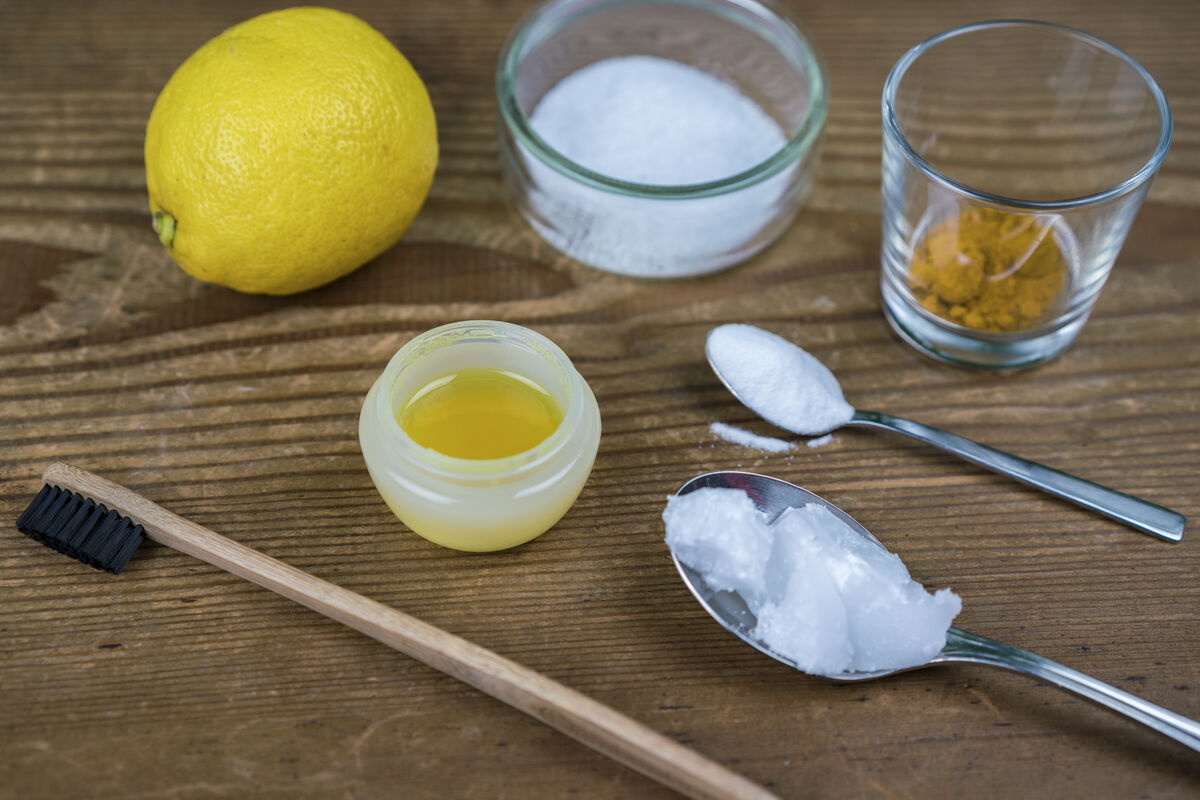Contents

Making Your Own Natural and Organic Toothpaste: A How-To Guide
Do you want to take care of your teeth naturally while reducing your environmental impact? What if you tried homemade toothpaste? Easy to make, economical, and eco-friendly, this alternative is winning over more and more followers. Discover all our tips and recipes for making your own healthy, effective, and organic toothpaste.
Why Opt for Homemade Toothpaste?
Did you know that most conventional toothpastes contain ingredients that are potentially harmful to your health? Among the substances often pointed out are:
- Sodium Lauryl Sulfate (SLS), a surfactant that can irritate the skin and mucous membranes.
- Artificial sweeteners and flavorings.
- Dyes and preservatives.
- Triclosan, which has been linked to concerns about antibiotic resistance and endocrine disruption.
By making your own toothpaste, you are guaranteed to use only healthy, natural ingredients. This is a great way to keep your teeth clean and your mouth healthy without exposing your body to toxic compounds. Another benefit is that making your own toothpaste significantly reduces packaging waste (plastic tubes, cardboard boxes). A simple and effective step for a zero-waste bathroom!
The Benefits of DIY Organic Toothpaste
In addition to controlling its composition, making your own toothpaste has many advantages:
- Effectiveness comparable to conventional toothpastes for removing dental plaque and maintaining oral health.
- Substantial savings (the cost of ingredients is minimal).
- The ability to adapt the recipe to your specific needs (sensitive teeth, fragile gums...).
- The choice of properties and taste through the addition of essential oils.
Essential Ingredients for a Natural Toothpaste
The list of ingredients you can use to make organic toothpaste is long. Some form a classic base, while others provide specific benefits. Here’s a look at the essential components:
- Antibacterial agents: They limit the proliferation of bacteria responsible for plaque and bad breath. The most common are essential oils (clove, tea tree, peppermint, thyme...).
- Whitening agents: Baking soda is known for whitening teeth, but be careful not to overuse it as it is abrasive. Activated charcoal is an effective and natural alternative. Coconut oil also has whitening properties.
- Remineralizers: Clay is ideal for remineralizing and protecting enamel. It is available in different forms (bentonite, kaolin). Calcium carbonate is another option.
- Texture agents: For a more pleasant texture, you can incorporate vegetable glycerin or coconut oil into your preparation.
Our Best Homemade Toothpaste Recipes
Making your own toothpaste is not rocket science! Here is the proof with our 3 simple, economical, and 100% natural recipes.
1. Remineralizing White Clay Toothpaste
Ingredients:
- 3 tbsp kaolin or bentonite clay
- 1 tsp baking soda
- 8 drops peppermint essential oil
Preparation:
- In a bowl, mix the clay and baking soda.
- Add the essential oil and mix until a homogeneous texture is obtained.
- Transfer to an airtight glass jar.
Shelf life: 3 months
2. Whitening Toothpaste with Activated Charcoal
Ingredients:
- 2 tbsp coconut oil (solid)
- 1 tsp activated charcoal powder
- 10 drops lemon or peppermint essential oil
Preparation:
- In a small bowl, soften the coconut oil with a fork.
- Incorporate the charcoal and essential oil.
- Mix until you get a smooth paste and transfer to an airtight jar.
Shelf life: 6 months / Use: 1 to 2 times a week
3. Intense Freshness Mint Toothpaste
Ingredients:
- 2 tbsp bentonite clay powder
- 1 tbsp baking soda
- 1/4 tsp ground cloves
- 5 drops peppermint essential oil
- Water (to desired texture)
Preparation:
- Mix all dry ingredients in a bowl.
- Add water gradually until you get a paste.
- Finish with the essential oil and mix thoroughly.
Shelf life: 1 month
Precautions and Tips for Success
Even if it's natural, a homemade toothpaste is not without risk if not prepared correctly. Here are some rules to follow:
- Be careful with dosing: some ingredients like baking soda or essential oils are very powerful. Used in too large quantities, they can damage enamel or irritate gums.
- Follow basic hygiene rules: wash hands thoroughly, wear gloves, use only sterile containers... A contaminated preparation could promote bacterial growth.
- Prepare small quantities: without preservatives, homemade toothpaste spoils quickly (1 week to 3 months depending on the ingredients). It's better to avoid making too much at once to limit waste.
In Conclusion
As you can see, making your own toothpaste has many advantages. In addition to doing something good for your health and the planet, you will make significant savings. Enough to budget for a quality rechargeable toothbrush!
FAQ
What is the shelf life of homemade toothpaste?
This depends on the ingredients used, but on average, a natural toothpaste lasts between 1 week and 3 months. It's better to make small quantities regularly.
Is it safe for children?
Yes, provided you choose suitable ingredients (e.g., no essential oils for young children) and respect the dosage. When in doubt, ask your dentist or pediatrician for advice.
Can you add fluoride to your preparation?
It is not recommended to add fluoride because the dosage is difficult to control. In case of an overdose, you risk damaging your teeth. If you want a fluoride supplement, it is better to use a fluoride mouthwash in addition to your toothpaste.
